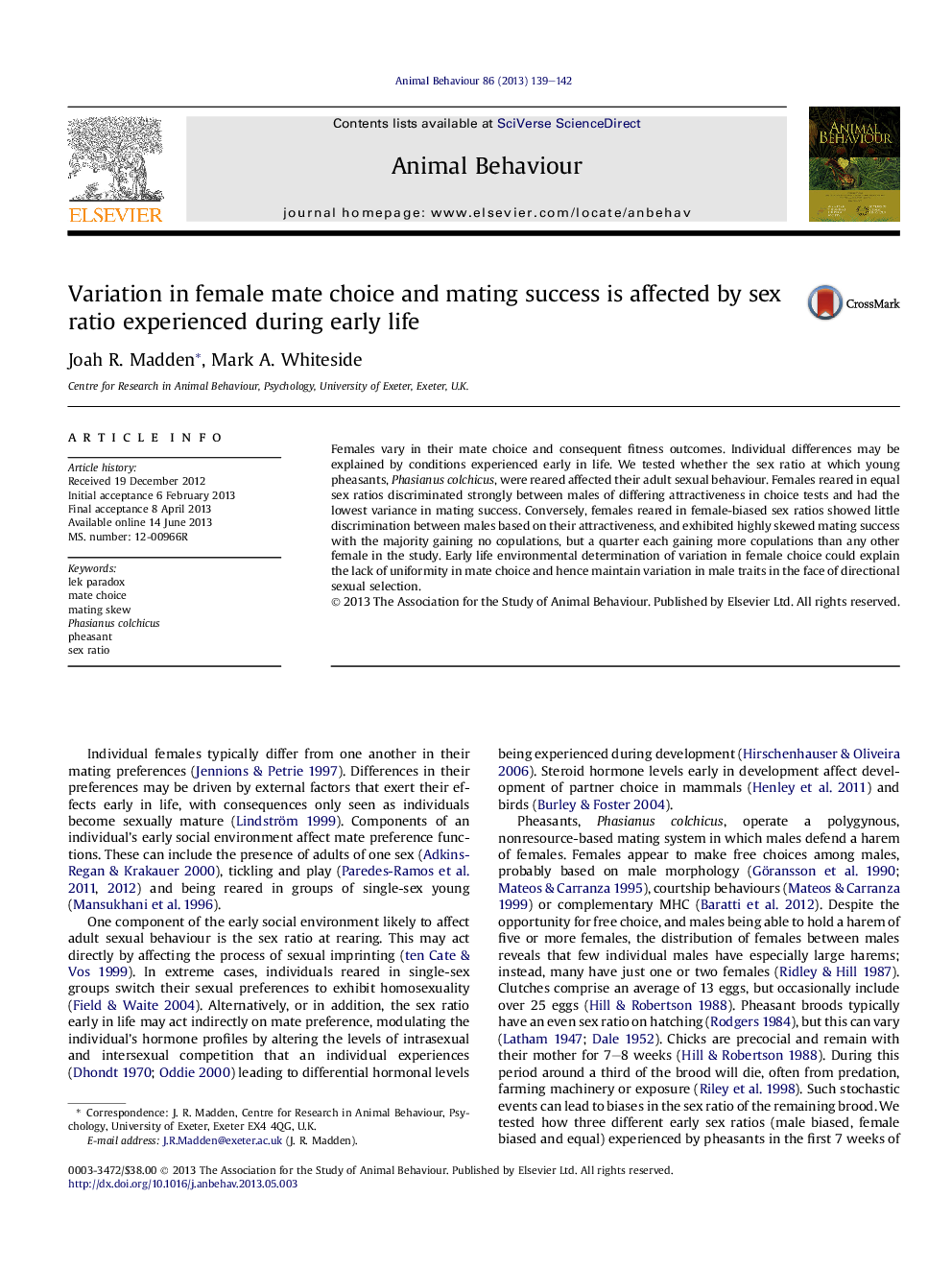| Article ID | Journal | Published Year | Pages | File Type |
|---|---|---|---|---|
| 10970695 | Animal Behaviour | 2013 | 4 Pages |
Abstract
Females vary in their mate choice and consequent fitness outcomes. Individual differences may be explained by conditions experienced early in life. We tested whether the sex ratio at which young pheasants, Phasianus colchicus, were reared affected their adult sexual behaviour. Females reared in equal sex ratios discriminated strongly between males of differing attractiveness in choice tests and had the lowest variance in mating success. Conversely, females reared in female-biased sex ratios showed little discrimination between males based on their attractiveness, and exhibited highly skewed mating success with the majority gaining no copulations, but a quarter each gaining more copulations than any other female in the study. Early life environmental determination of variation in female choice could explain the lack of uniformity in mate choice and hence maintain variation in male traits in the face of directional sexual selection.
Related Topics
Life Sciences
Agricultural and Biological Sciences
Animal Science and Zoology
Authors
Joah R. Madden, Mark A. Whiteside,
